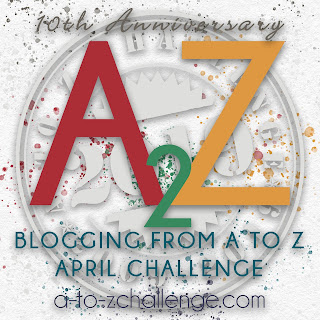
A publishing contract is a legal contract between a writer and a publisher regarding a piece of the writer’s original work. It will outline the rights the publisher is licensing, the period of time, the share of revenue the writer can expect and many other things relating to the work and its publication.
But not all publishing contracts are alike. Before signing anything, it’s really important that you get someone who understands contracts – particularly publishing contracts – to look over it for you. If you have an agent, she will be familiar with contracts and will negotiate the best deal on your behalf. If you don’t have an agent, you really need to get a lawyer to look over any contract before signing it.
I’m not a lawyer, or an agent, but I do have some experience with contracts, so here are a few things to check for in any contract.
Make sure you retain the rights to your work. A publishing contract should only last for a stated period, and at the end of that period, you may wish to get the rights back so you can sell them to another publisher or publish the work yourself. A publisher should only ever be licensing publishing rights, not requiring you to sign over intellectual property rights.
What your share of the revenue made from publishing the work should always be based on gross receipts, not net profit. If you sign a deal based on net profit, you will never see any money because the publisher gets to recoup costs before any revenue is shared with the writer. And editing, marketing, distribution, printing and numerous other costs can eat up any chance of there being profit to share. If you have to sign a contract offering a net profit share, there will need to be a pretty substantial up-front fee paid to the writer to make it worthwhile.
It is important that any publishing contract includes a rights reversion clause – something I know about from personal experience! If a publisher closes, you want to make sure your rights return to you. Without this clause, getting the rights to your work back can be tricky, time-consuming and costly. Rights reversion is also important if your book goes out of print and in an era of digital publishing and printo on demand, what this means needs to be defined. For example, if a book sells less than (insert number) of copies over a period of time, it should be considered out of print.
There are various different rights associated with publishing, so it’s important that your contract outlines exactly what your publisher can and can’t do with your work, from publishing excerpts in magazines to assigning the rights to another company. It’s important to understand what rights your publisher holds, and to hold onto the right to approve any licensing of these additional rights.
Money is, naturally, one of the biggest concerns in any publishing contract. Make sure you understand what your share is, and how frequently the publisher reports and pays royalties. If your contract says you will get reports and payments quarterly, and six months goes by with no word from said publisher, that could be a sign the publisher is in trouble.
This is by no means a comprehensive list – just a few things I’ve learned over the years. So please, please do your own due diligence before entering into any contract. It’s amazing what you can discover just by Googling a publisher and the word ‘complaints’...



6 comments:
Invaluable advice!
Ronel visiting from the A-Z Challenge with Music and Writing: More, Please
Good advice for anyone dealing with a contract of any sort, particularly getting a lawyer's imprimatur.
John @ The Sound Of One Hand Typing
It seems fairly reprehensible to consider publishers who will rip off the essential creator of a work, the writer, in such ways...
I have a rather chilled attitude to folk reproducing my work and contracts on the grounds that no one will ever want to reproduce it or offer me a contract to do so. I think this means I can be very relaxed, and a stress free life is a happy life. . . . Well almost stress free, the Pesky Cats do their best to ruin my blood pressure and the like.
Many thanks for visiting my blog it was very kind. I am trying to make sure I get back to everyone but I have my own project on the go at present involving wood, architecture and art. So It can take me a bit of time to respond to comments, but I will get there.
I had my first book contract looked over by the Australian Society of Authors, but education contracts are different from trade ones, much more inflexible. However, they can be well paid if you don’t mind all the firstborn-child demands!
These are great tips! I hope to use them someday when offered a publishing contract of my own!
p.s. used your suggestion for my R post.
Doesn't Speak Klingon
Post a Comment